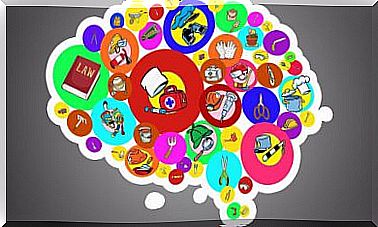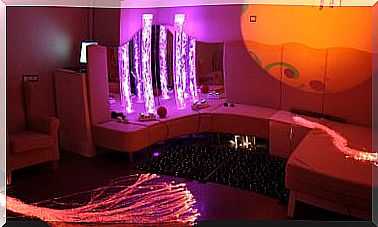Impact Of Anxiety On The Brain: The Labyrinth Of Exhaustion
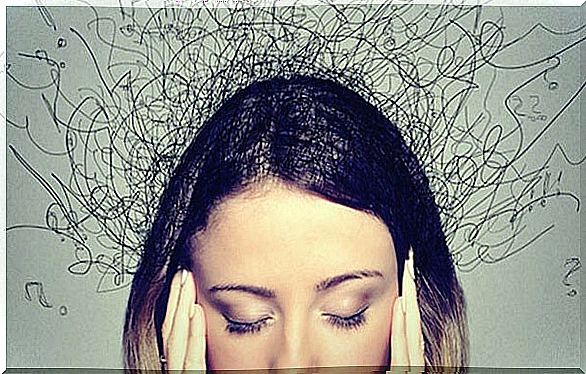
The impact of anxiety on the brain is enormous. Cortisol, adrenaline, and norepinephrine make us alert and defensive. Soon, our mind will be fertile ground for irrational thoughts, for fear that devours and paralyzes, for those emotions that, like a cold evening, without moon or stars, completely obscure our reality. The truth is that few psychological states can be so intense.
Demographic studies tell us that many people live with chronic anxiety. Unable to see that there is another way of feeling and processing reality, they let themselves be carried away by this workhorse without knowing how to react. Others, on the other hand, experience what is known as situational anxiety. Speaking in public, facing a job interview or an exam or even socializing exemplify moments where that red flag of danger is raised that limits us so much.
We have all dealt with anxiety at one time or another. This very natural human response, which in the precise doses can act as a valuable driver for our purposes, very often gets out of hand. Soon, it is she who takes control of our lives almost without realizing it. And when that happens, everything deforms and falls apart, like in a Kandisky painting.
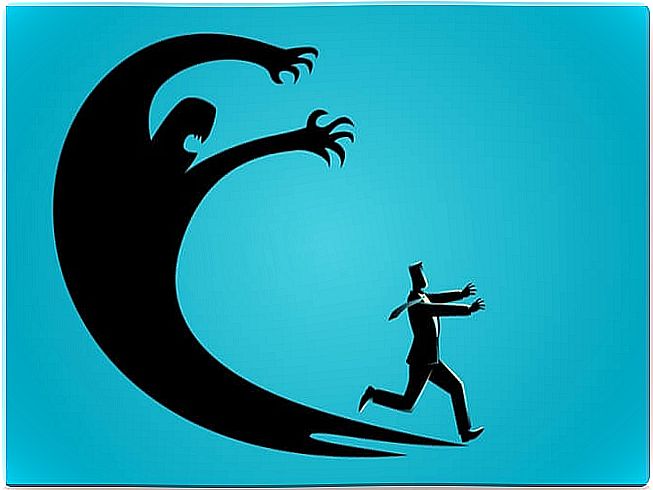
Impact of anxiety on the brain
To understand much better the impact of anxiety on the brain, we must know how to differentiate a first detail. We must know how to differentiate it from stress. For example, the latter responds to a physiological activation process that arises as a result of multiple external factors. That is, there is always an element that triggers it in the present moment. The pressure at work, an excess of tasks, family problems, etc … All this arises when we are aware that “we lack resources” to cope with all these stimuli.
Now, anxiety is something more complex. Although it is true that it can often arise as a result of stress itself, it can be said that on many occasions we experience this emotion without knowing why. It is something internal, something that comes up over and over again and at different times in time. We are facing a physiological response that prepares us to escape or fight against a threat (real or not).
All of this makes anxiety inherently different from stress and, in turn, much more difficult to handle because of the way it is orchestrated in our brain. Let’s see it next.
The amygdala
The amygdala is a small structure located deep within our brain. It is she who processes and interprets all the sensory signals that come from our environment. She is also the one who alerts the brain that there is a threat, a danger to defend against. It is, so to speak, like that instinctive sensor (and sometimes even irrational) that makes us react to common fears such as spiders, darkness, heights …
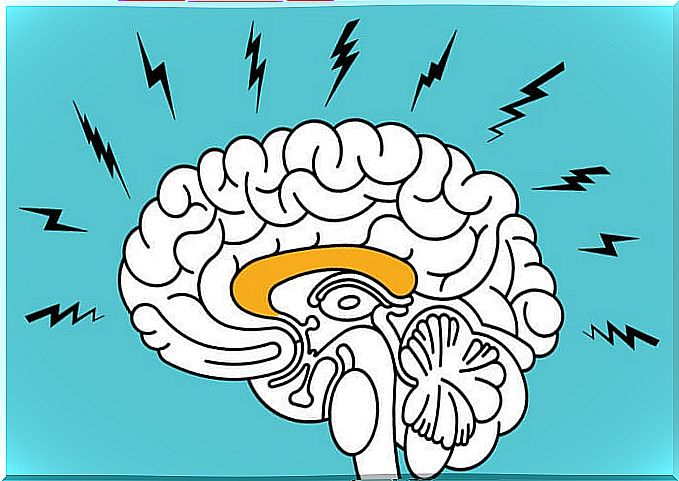
The hippocampus
The hippocampus is the part of the brain linked to our emotional memory. If the impact of anxiety on the brain is intense and sustained over time, this structure will be one of the ones that will suffer the most. Its size is reduced and we suffer serious effects associated with this alteration. Thus, memory losses, concentration problems or even post-traumatic stress are frequent. Let’s think that this effect is common in children who have suffered abuse, the devastating weight of permanent fear, anguish, the continuous feeling of danger …
On the other hand, just a few months ago, a discovery as interesting as it was hopeful was published in the magazine “Neuron”. The cells responsible for anxiety have been found to be located right here in the hippocampus. Based on this finding, they hope to develop more precise drugs to regulate its activity.
Cortisol, norepinephrine, and adrenaline
Restlessness, the feeling of alarm, tension in the muscles or tachycardia are the effect of the action of very specific neurotransmitters. The impact of anxiety on our brain is due to that infallible (and fearsome) conjunction of cortisol, norepinephrine and adrenaline.
Thus, while the amygdala was in charge of identifying the danger, these neurotransmitters drive us to react. The brain wants us to defend ourselves, to escape and react … And something like this is achieved by bringing more blood to the muscles. Accelerating the heart, bringing more air to the lungs …
This state of alarm can help us at a specific time as long as the threat “is real.” However, when this is not the case and that physiological activation is constant, problems arise. Bad digestions, headaches, hypertension, risk of cerebrovascular accidents …

What can we do about the impact of anxiety on the brain?
As we pointed out at the beginning, anxiety is a physiological response. Therefore, it is not enough to tell us that “calm down, everything will be fine”. If our brain thinks there is a danger, our reasoning is of little use. Therefore, it is advisable to start with the physiological, the organic, the corporal.
- Convince your body that there is no threat. How? Practice relaxation, deep breathing, put your body on “pause” so that your brain does too.
- Put anxiety in your favor. Managing anxiety is not a problem of willpower. It is not about making this psycho-physiological reality disappear from our brain. It’s about coping with it, about using what it gives us to our advantage. To visualize this idea and achieve it, we can make use of artistic therapies. Molding the clay or even painting, serve to shape that anxiety that like a devouring monster, can be made smaller, more harmless and manageable.
- New habits, new routines. Sometimes, varying something in our daily tasks changes everything. Going for a walk, going to a musical concert every week, meeting new people, joining yoga… All this can change the perception of alarm in our brain to begin to see things differently.
Finally, do not hesitate to consult a professional in case that state of anxiety overcomes us. No one deserves to live in fear, no one should permanently inhabit the prison of that chronic anxiety that obscures everything.




